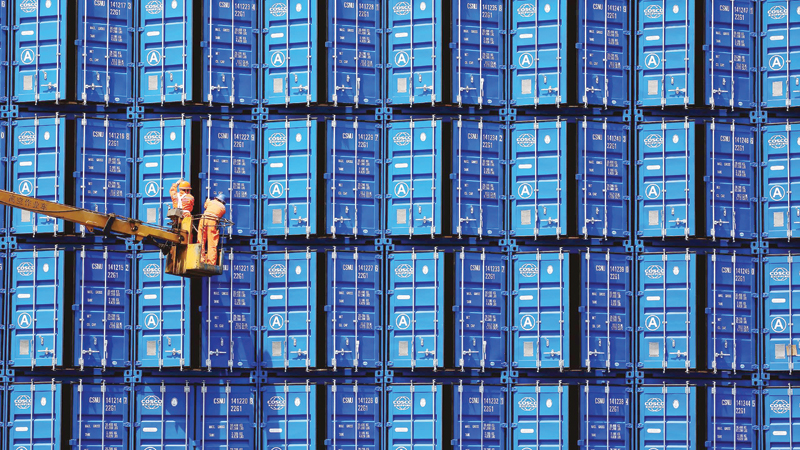

BENGALURU: The outlook for global growth in 2019 has dimmed for the first time, according to economists who said the United States and China trade war and tightening financial conditions would trigger the next downturn.
At the start of 2018, optimism about a robust global economic outlook was almost unanimous among respondents.
But the polls of more than 500 economists taken this month showed a downgrade to the outlook for 18 of 44 economies polled, with 23 unchanged. Only three were marginally upgraded.
While risks from trade protectionism have been consistently highlighted by polls since January last year, the latest indicated that growth in about 70 per cent of 44 economies surveyed has already peaked.
“A simple dynamic is playing out in the global economy right now: the US is booming, while most of the rest of the world slows or even stagnates. The stresses caused by this divergence are playing out uncomfortably in many emerging markets,” noted Janet Henry, global chief economist at HSBC.
“A US Federal Reserve that is raising interest rates to prevent the US economy from overheating is constraining the policy options of countries where financial conditions are tightening and trade tensions intensifying.” The latest shift in growth expectations comes on the heels of a deep sell-off in financial markets, especially emerging ones, largely driven by trade concerns.
A majority out of nearly 150 economists said the top two triggers for the next global downturn were a further escalation of US-Sino trade tensions, and tightening in financial conditions driven by a deep sell-off in global equities or a rapid rise in government bond yields.
“First, there would be no winners from a global trade war. Even if the aggregate costs are modest and skewed toward more open economies, all countries would ultimately be worse off compared to the status quo,” noted Neil Shearing, group chief economist at Capital Economics.
“(it)... would inflict lasting damage to growth and cause a permanent loss of output.” US President Donald Trump’s administration threatened duties on $267 billion of Chinese goods on top of tariffs already levied on $250 billion previously — amounting to almost all imports. Beijing retaliated.
A majority of economists covering the US economy who were asked an additional question said US economic policy toward China over the next few years would become more confrontational.
Along with faster-than-expected increases in US interest rates compared to the previous poll, that points to a substantial slowdown in the US economy by late next year, even as it remains the current major driver of global growth.
But only a slim majority expect US wage growth to pick up meaningfully before the next recession. — Reuters
Oman Observer is now on the WhatsApp channel. Click here



